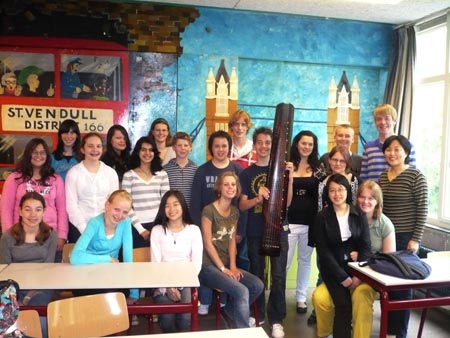Top 10 best performing education systems in the world
- By Xu Lin
 0 Comment(s)
0 Comment(s) Print
Print E-mail China.org.cn, December 24, 2013
E-mail China.org.cn, December 24, 2013
Recent international tests by OECD (the Organization for Economic Co-operation and Development) have revealed that Shanghai in China has the top education system in the world.
The PISA tests - the Program for International Student Assessment - investigates and compares the performance of schools and education systems worldwide by assessing 15-year-old students in three main subjects – mathematics, reading and science.
As one of the most influential rankings in international education, the assessments are held every three years, and each round places a special focus on one of the key subjects: in 2012, the 5th survey, it was mathematics.
China didn’t participate in the test as a whole country; instead, it was represented by some high-performing cities such as Shanghai and Hong Kong.
Shanghai outperformed 64 other countries and cities in all three subjects, with average scores of 613 in mathematics, 570 in reading and 580 in science, while the OECD average scores are 494, 496 and 501 respectively. Its math score was the equivalent of three years' schooling above the average.
The other top places were dominated by the school systems in Asian economies including Singapore, Taiwan, South Korea and Japan.
Around 510,000 students between the ages of 15 years 3 months and 16 years 2 months participated in the assessment, representing about 28 million 15-year-olds globally.
The following are the top 10 economies for student performance.
Netherlands
|
Netherlands [File photo] |
Average score in mathematics: 523
Average score in reading: 511
Average score in science: 522
Go to Forum >>0 Comment(s)








